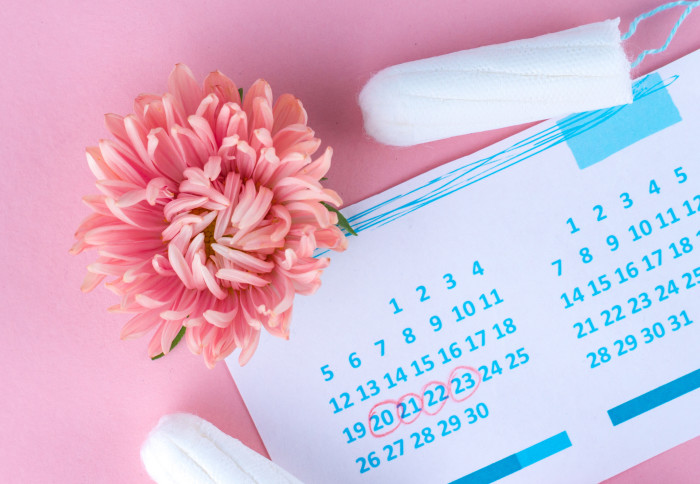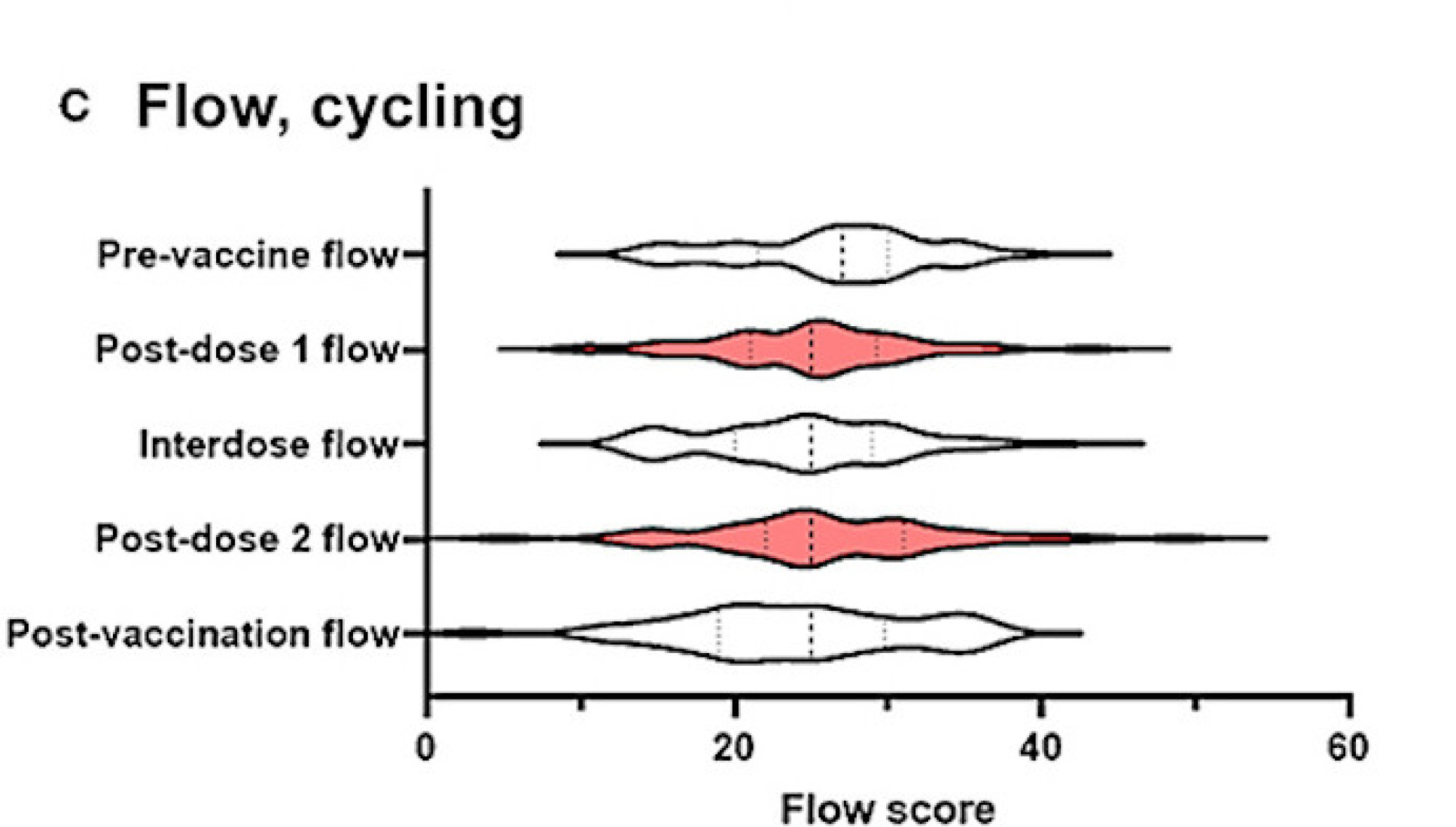

A new Imperial study has found that periods can be slightly delayed following a COVID vaccination but return to normal the following cycle.
The study, published in Frontiers in Reproductive Health and led by the Department of Metabolism, Digestion and Reproduction's Dr Victoria Male, looked at the effect of COVID-19 vaccinations on menstrual bleeding in two cohorts of women.
"Would I let these findings put me off getting vaccinated? Well, I got vaccinated while analysing these results, so no!" Dr Victoria Male Lecturer in Reproductive Immunology
The first cohort of 79 individuals each recorded details of at least three consecutive menstrual cycles, during which time they each received at least one dose of COVID-19 vaccine. In spontaneously cycling participants, COVID-19 vaccination was associated with a delay to the next period, but this change reversed in subsequent unvaccinated cycles. Interestingly, no delay was detected in those taking hormonal contraception.
The study also found that there was no effect of vaccination on flow in this cohort, which was specifically designed to assess this. However, the team recognises this is a small cohort of data and that future big data approaches might be able to detect flow changes this study couldn't.

To further explore the mechanism by which menstrual changes occur, the team then retrospectively recruited a larger cohort of 1,273 people, who had kept a record of their menstrual cycle and vaccination dates. In this cohort, there was a trend toward the use of combined hormonal contraception being protective against reporting a delayed period, suggesting that menstrual changes following vaccination may be mediated by perturbations to ovarian hormones.
However, the study was unable to detect a clear association between the timing of vaccination within the menstrual cycle and reports of menstrual changes.
The study also looked at the impact of vaccine brands on menstrual timing or flow but found no noticeable differences. Taken together with the effect of combined hormonal contraception, this suggests that vaccine effects on periods are probably not mediated by a specific approach or ingredient, but rather by the immune response. This is in line with reports that other immune challenges, such as HPV vaccination or COVID infection, can alter periods.

The findings of this study suggest that COVID-19 vaccination can lengthen the menstrual cycle and that this effect may be mediated by ovarian hormones. However, importantly, it found that the menstrual cycle returns to its pre-vaccination length in unvaccinated cycles.
Speaking about the study, Dr Viki Male said: "Would I let these findings put me off getting vaccinated? Well, I got vaccinated while analysing these results, so no! The study results align with others, finding that post-vaccination changes to periods are small and quickly reverse.
"For anyone who is particularly worried about the findings, it is also worth remembering that catching COVID can affect periods, so the most important thing you can do is try to avoid getting COVID."
Alvergne A, Woon EV and Male V (2022). Effect of COVID-19 vaccination on the timing and flow of menstrual periods in two cohorts. Front. Reprod. Health 4:952976. doi: 10.3389/frph.2022.952976
Article text (excluding photos or graphics) © Imperial College London.
Photos and graphics subject to third party copyright used with permission or © Imperial College London.
Reporter

Benjie Coleman
Department of Surgery & Cancer

Contact details
Tel: +44 (0)20 7594 0964
Email: b.coleman@imperial.ac.uk
Show all stories by this author



